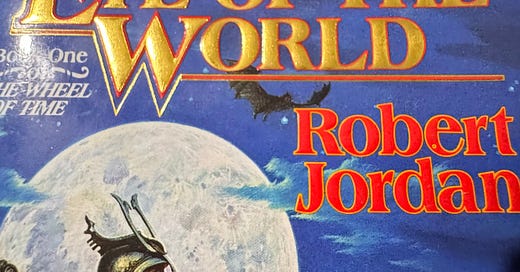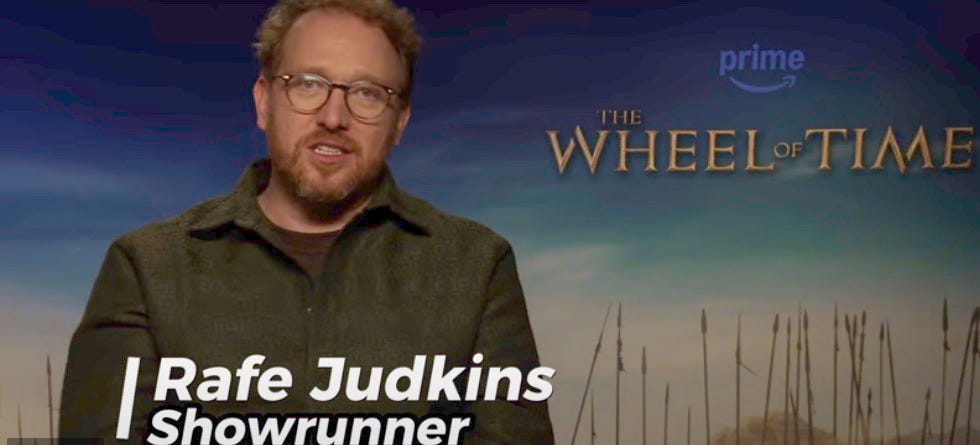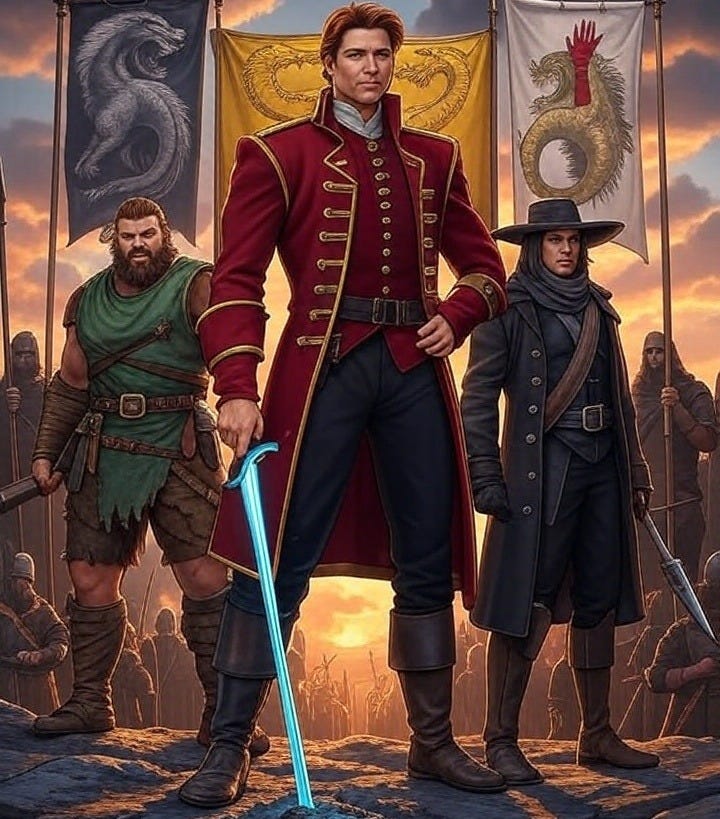The Wheel of Time: A Wheel of Festering Hollywood Inclusivity
Why it failed and why every show like it will continue to fail
It was all over the place, as pervasive as water in the ocean—the stunning success and incredible Amazon Prime series, The Wheel of Time, with an unprecedented, breathlessly reported 88% Rotten Tomato score, and an even more stunning 75% audience score.
One look at Moraine, played by Rosamund Pike, should have disabused everyone of such notions. Her serious, implacable face, which looks as if it just took a turn with a shovel, is hardly the ringlet-haired, large-eyed mystery the books portrayed her as.
No, this version of Moraine is the epitome of cringe-inducing, useless choreography, jumping, lunging, spinning, crouching, crocheting, and every-fucking thing under the sun to cast a simple spell. Because gay, that’s why. No, seriously. She’s gay, because, of course. Siuan Sanche couldn’t possibly just be the Amyrlin Seat and friend to Moraine without some serious scissor action.
Initially, hopes were high that this would be Amazon Prime’s Game of Thrones killer, the new epitome of high fantasy that every other series would forever chase. It was Prime’s “most-watched” series premiere of the year and one of its top 5 launches ever. I mean, EVER. You feel me? Impressive stuff, before the show walked itself straight off a cliff.
Seasons 1 and 2 cost Amazon an estimated $260 million. Yes, a quarter of a billion dollars for a gigantic dose of girl-power, subtle lesbianism, wooden characters, and a primary protagonist who had about as much screen time as the lowest-paid waterboy on set. Here’s a hint Amazon: if you want to release a series that will put butts in seats, don’t hand it over to Rafe Judkins.
The narrative of Season 3’s popularity mostly revolved around critical acclaim and a very vocal fanbase. Place three LGBTQIA supporters in a room with Matt Walsh and you’ll find out why the “vocal” adjective applies. Nowadays, all a series needs to achieve “critical acclaim” is one or two dialogue-heavy girl bosses, an androgynous character, and diversity. Nothing else needs to apply.
Regardless, the media spin was wrong, yet again. The high critical score came from a small pool of reviewers, the rest fell asleep in the first few scenes of season 1. It’s not likely that the recently launched fan campaign will change the show’s ignominious fate, either, despite the supposed 150,000 letters to executives. Whiny letters to Amazon can’t overcome the fact that production costs far outweigh returns.
While The Rings of Power suffers from the same lack of audience and enthusiasm, it’s bolstered by the Lord of the Rings brand, which began with Tolkien’s beloved works, followed by a nuclear-level mainstream injection from Peter Jackson. The Wheel of Time made the leap from book to screen in an age where half the population is obsessed with what’s between everyone’s legs and the other half is waiting impatiently for the Second Coming.
Now, major media outlets are blaming the platform altogether, and the fact that there was an extensive wait time between seasons 2 and 3. Sure thing, fellas. When a docu-comedy about a racecar enthusiast boomer turned farmer consistently blows your high-fantasy epic out of the water, you have problems.
It’s also interesting that Clarkson’s Farm at least has UK viewer totals, while The Wheel of Time is left to the murky world of guesswork and Nielsen’s ratings. A $500 million money pit does not a popular classic make.
No, the primary reason The Wheel of Time is quickly on its way to a subcategory in Amazon Prime’s exhaustive library of failures is the idiotic idea that diversity and sexual proclivities are the beating heart of a good story. “Put a chick in it and make her gay,” as it was so aptly put on South Park. They chased off Robert Jordan’s massive reader base before running off those newly discovering Jordan’s world of epic fantasy.
The Wheel of Time series was primarily focused on Ta’varen, special people within the “Pattern”. Rand al’Thor, Perrin Aybara, and Matrim (Mat) Cauthon are the three main protagonists around whom the Pattern is strongly affected. Watching Amazon’s pubescent venereal disease, you’d be forgiven for not realizing this. The show’s focus eschews Rand almost entirely, bends Perrin’s story over the nearest log, and turns Matt into an immensely annoying caricature of a gnat, flying around the family BBQ and biting everyone.
No, you know who the show focuses on primarily—girl power. Egwene and Moraine are strong, independent women with immense intelligence, capability, and wherewithal. Everyone who has watched a TV series or movie post-2010 saw this coming from miles away.
Then there’s the abysmal dearth of quality writers. When you hire an overweight, purple-haired alphabet advocate to write your screenplays, and put it all under the watchful eyes of the director who gave us the cinematic masterpiece known as Uncharted, you’ve created a recipe for high-spending, low returns.
In short, nobody wants to watch these weeping herpes sores unfold on screen, after paying a monthly subscription fee to access them. The Rings of Power is Amazon’s tentpole, and they’ll probably stagger across the 5-season commitment line, making most of their revenue through the profile boost it provides and its links to most of Amazon’s massive ecosystem.
Still, Amazon is probably going to eat The Rings of Power the hard way for a little while and limp on afterward. One can hope that the lesson will finally hit home, and we can dispense with the sad, pathetic wishful projectionism conveyed by frightened, hateful writers. May the Wheel of Time be long forgotten, dead and buried without a sound.







